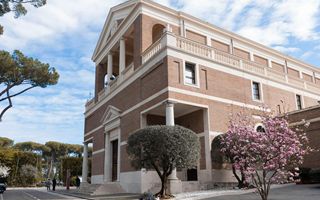(Finance) – The number of enrolled in universities increases globally and, according to the Science Report UNESCOhas currently exceeded i 250 million. It grows also the number of international students: by 2025 there could be 8 million people who, from their country of origin, will go to study abroad. A figure four times higher than that of 2000. And if China and India are the countries recording the greatest exodus of students, the number of those coming from Africa is also expanding. On the other hand, many OECD countries have to deal with the birth rate decline: in Italy in 2023 only 379 thousand children were born and the negative trend has continued since 2008. Fewer young people potentially means fewer students, with clear repercussions also for universities .
There challenge of internationalization is, therefore, increasingly felt and urgent in universities: to attract students from all over the world and train the future ruling class, it is necessary to offer transnational academic contexts, in which teaching and research are aligned as much as possible with global standards and close to the world of work. These themes were at the center of the event organized by Luiss: “The Future of Higher Education“, which took place today on the viale Romania campus, where important experts in the fields of research, education and business provided their vision on the future of the academic world.
“Universities need to prove themselves ready to face the complexities and challenges of an ever-evolving world. The proposal of innovative educational models, a cosmopolitan environment attentive to the issues of sustainability, diversity and inclusion, the focus on technological developments and Artificial Intelligence: only by taking these aspects into consideration will universities be able to empty their toolbox and fill it with new content, to train the leaders of tomorrow”, declared the Luiss Rector Andrea Prencipe.
As he pointed out Shitij Kapur, Vice-Chancellor of King’s College London and among the guest speakers of the event: “Even the excellences of the United Kingdom in recent years have found themselves in a ‘Triangle of Sadness’ where universities have to face, on the one hand, the changes in student communities and on the other public institutions that reserve fewer and fewer contributions to higher education and universities which must maintain their competitiveness in a phase of extraordinary increase in academic research coming from China. Universities need to find new models of efficiency and new ways of operating, through the use creative of digital, online and Artificial Intelligence tools”.
The meeting “The Future of Higher Education”, opened by the introduction of Luiss President Luigi Gubitosi, took place in two sessions – University and Regulation and Research and Public Funding – with interventions by Marcella Panucci (Head of Cabinet, Ministry of University and Research), Alessandra Ricci (CEO, SACE), Simon Roy (Head of Higher Education Policy, OECD), Ashish Arora (Rex D. Adams Professor of Business Administration Fuqua School of Business at Duke University), Emilio Fortunato Campana ( Director of the Engineering, ICT and Energy and Transport Technologies Department, CNR) and Maximo Ibarra (CEO, Engineering), moderated by Chiara Albanese, Rome Bureau Chief Bloomberg News.
